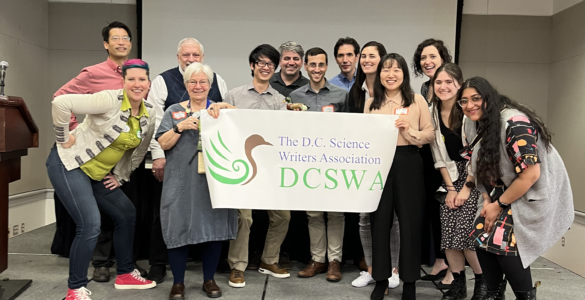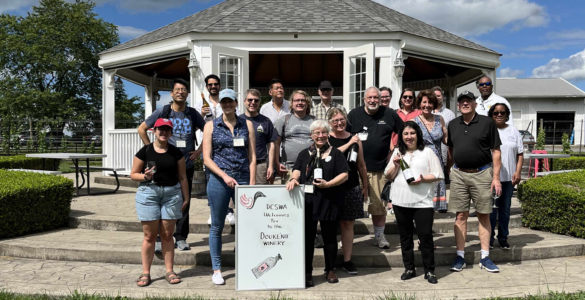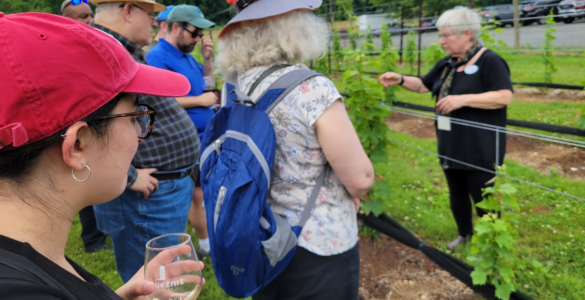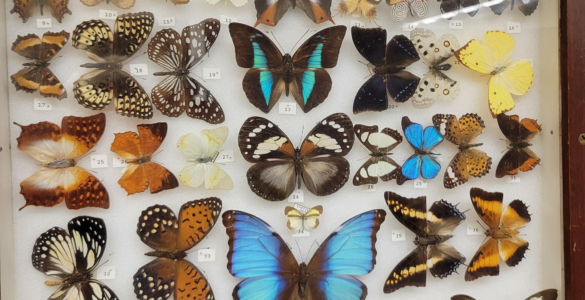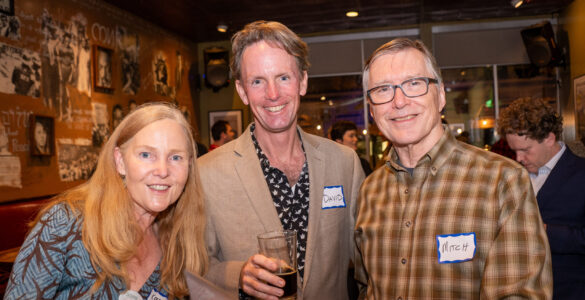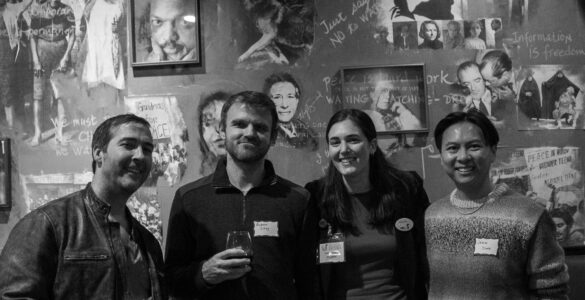For Immediate Release
April 2, 2021
Contact: Christine Dell’Amore
rueparadis@gmail.com
Winners Announced for 12th Annual DCSWA Newsbrief Award
Washington, D.C.—A story about a hummingbird that can nearly freeze itself solid and a video about the quest for a more diverse human genome reference library have won the twelfth annual D.C. Science Writers Association’s Newsbrief Awards.
Longform journalism often gets our accolades, but short pieces are the true workhorses of science communication. In the spirit of recognizing these unsung works of excellence, we have been offering the Newsbrief Awards since 2009.
For the 2020 award, two separate panels of distinguished science writers judged more than 50 entries divided into two categories, Writing and Multimedia.
In the Writing category, Jonathan Lambert won for his story “This hummingbird survives cold nights by nearly freezing itself solid,” which ran in Science News. “This short piece provides a fascinating look into the black metaltail hummingbird’s ingenious solution to surviving the cold,” judges said.
Lambert is a staff writer at Science News, where he covers the biological sciences with a special focus on biodiversity and environmental issues. The 2018 AAAS Mass Media Fellowship convinced Lambert to shift from doing science to writing about it, and he landed at Science News after stints writing for Quanta Magazine, NPR, and Nature News.
A Writing honorable mention was awarded to Michael Greshko for his story “Walking back in time, in a volcano’s shadow,” published in National Geographic magazine. Judges said the story is “a lesson in how to write short.”
Michael Greshko is a writer and producer on National Geographic‘s science desk, where he covers everything from dinosaurs to dark matter and disease. He also has written for publications including MIT Technology Review, Inside Science, and NOVA Next. He lives in Washington, D.C.
Another Writing honorable mention went to Asher Jones for her story “Plastic waste forms huge, deadly masses in camel guts,” which appeared in Science News. Jones is a science journalist based in Arlington, Virginia. She has a Ph.D. in entomology, but enjoys writing about insects more than studying them. She was a 2020 AAAS Mass Media Fellow at Voice of America and the spring 2021 intern at The Scientist. Her writing has also appeared in Slate, Science News, and Science News for Students.
Jones also won a second honorable mention in the Multimedia category for her radio piece, “New app identifies mosquitoes by buzzing sound,” which aired on Voice of America.
In the Multimedia category, Prabarna Ganguly and Harriet Bailey earned top prize for their video “The Human Pangenome,” published by the National Human Genome Research Institute. “Explaining DNA is never easy, so I was impressed by their mastery of blending animation and strong writing to effectively tell a story,” said one judge.
Ganguly is a neuroscientist and science writer based in Washington, D.C. She currently works at the National Institutes of Health as a writer-editor, disseminating genomics for the public. She completed her Ph.D. in psychology (with a focus in behavioral neuroscience) from Northeastern University in 2018.
Bailey is a producer/director turning science into award-winning factual content for TV, film, and animation. From gibbons in the Bornean rainforest to quantum computers in Bristol and to the far reaches of the solar system (Pluto!), she has collaborated with the BBC, National Geographic, PBS, Discovery, Al Jazeera, and IMAX to bring scientists and their discoveries to screens. Working with Massive Science, she has produced acclaimed science animations alongside NIH, MIT and ASU.
Another honorable mention in the Multimedia category is awarded to Theresa Machemer for her video “Good news: daffodils are the worst,” which aired on SciShow.
Machemer is a freelance science writer. Her work tends to focus on biology and medicine, though she can’t help but write about technology, history, and PEZ dispensers along the way. She is a digital contributor at Smithsonian and her work also appears in National Geographic and SciShow. She studied science writing and biology at MIT.
DCSWA plans to celebrate the winners in an upcoming virtual ceremony, whose date will be announced soon. Teams that won top awards will receive $300 and a trophy; those awarded honorable mentions will receive certificates.
DCSWA members were eligible to submit entries published between January 1 and December 31, 2020. The D.C. Science Writers Association is an organization of more than 500 science reporters, editors, authors, and public information officers based in the national capital area. Details on how to enter the 2021 Newsbrief Award will appear on the DCSWA website by the end of the year.
Photos of the winners are available upon request.
######

